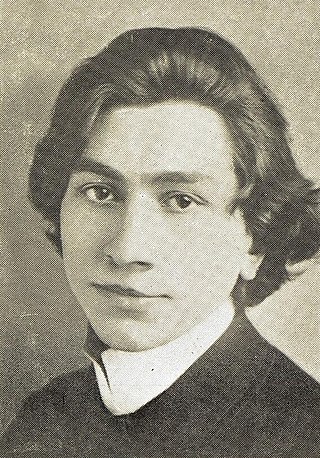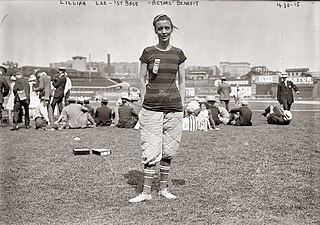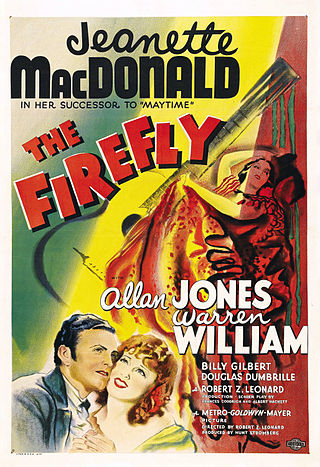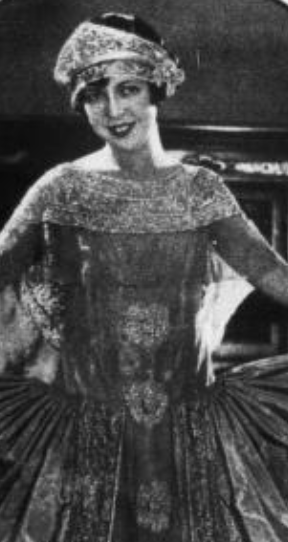Related Research Articles

Otto Abels Harbach, born Otto Abels Hauerbach was an American lyricist and librettist of nearly 50 musical comedies and operettas. Harbach collaborated as lyricist or librettist with many of the leading Broadway composers of the early 20th century, including Jerome Kern, Louis Hirsch, Herbert Stothart, Vincent Youmans, George Gershwin, and Sigmund Romberg. Harbach believed that music, lyrics, and story should be closely connected, and, as Oscar Hammerstein II's mentor, he encouraged Hammerstein to write musicals in this manner. Harbach is considered one of the first great Broadway lyricists, and he helped raise the status of the lyricist in an age more concerned with music, spectacle, and stars. Some of his more famous lyrics are "Smoke Gets in Your Eyes", "Indian Love Call" and "Cuddle up a Little Closer, Lovey Mine".
This is a list of notable events in music that took place in the year 1916.

Charles Rudolf Friml was a Czech-born composer of operettas, musicals, songs and piano pieces, as well as a pianist. After musical training and a brief performing career in his native Prague, Friml moved to the United States, where he became a composer. His best-known works are Rose-Marie and The Vagabond King, each of which enjoyed success on Broadway and in London and were adapted for film.

Rose-Marie is an operetta-style musical with music by Rudolf Friml and Herbert Stothart, and book and lyrics by Otto Harbach and Oscar Hammerstein II. The story is set in the Canadian Rocky Mountains and concerns Rose-Marie La Flemme, a French Canadian girl who loves miner Jim Kenyon. When Jim falls under suspicion for murder, her brother Emile plans for Rose-Marie to marry Edward Hawley, a city man.

Little Mary Sunshine is a musical that parodies old-fashioned operettas and musicals. The book, music, and lyrics are by Rick Besoyan. The original Off-Broadway production premiered November 18, 1959 at the Orpheum Theatre in New York City's East Village. Staying in the neighborhood, it moved to the Player's Theatre on June 21, 1961, then, finally, to the Cherry Lane Theatre on March 21, 1962. Closing was Sept. 2, 1962. Combined run was 1,143 performances. It was seen briefly in a West End production in 1962 and has become a popular show for amateur and semi-professional groups in the United States and elsewhere.

The Vagabond King is a 1925 operetta by Rudolf Friml in four acts, with a book and lyrics by Brian Hooker and William H. Post, based upon Justin Huntly McCarthy's 1901 romantic novel and play If I Were King. The story is a fictionalized episode in the life of the 15th-century poet and thief François Villon, centering on his wooing of Katherine De Vaucelles, and relating how he becomes “king for a day” and defends France against the invading forces of the Duke of Burgundy.
The Three Musketeers is a musical with a book by William Anthony McGuire, lyrics by Clifford Grey and P. G. Wodehouse, and music by Rudolf Friml. It is based on the classic 1844 novel by Alexandre Dumas, père. Set in France and England in 1626, it recounts the adventures of a young man named d'Artagnan after he leaves home to become a Musketeer of the Guard. The three men of the title are his friends Athos, Porthos and Aramis.

Lillian Lee was a stage actress in New York City beginning in the early 1880s. She was in the cast of the original Ziegfeld Follies in 1907.

Mexican Hayride is a musical with a book by Herbert Fields and Dorothy Fields and music and lyrics by Cole Porter. The show opened on Broadway in 1944.

The Firefly is a 1937 musical film starring Jeanette MacDonald and Allan Jones. The film is an adaptation of the operetta of the same name by composer Rudolf Friml and librettist Otto A. Harbach that premiered on Broadway in 1912. The film used nearly all of the music from the operetta but jettisoned the plot in favor of a new storyline set in Spain during the time of the Emperor Napoleon I. It added a new song, "The Donkey Serenade", which became extremely popular, as was one of the Friml songs, "Giannina Mia". The original release prints of the film were elaborately tinted with Sepia-Blue, Sepia-Orange and Sepia-Blue-Pink.
Hold On To Your Hats is a musical comedy in two acts by Guy Bolton, Matt Brooks, and Eddie Davis, with lyrics by E. Y. Harburg and music by Burton Lane. The show was lavishly staged by Edgar MacGregor, with dances by Catherine Littlefield, musical direction by Al Goodman, and colorful settings and costumes by Raoul Pene Du Bois. It was produced by Al Jolson and George Hale at the Shubert Theatre on September 11, 1940. It ran for 158 performances, closing on February 1, 1941. The cast included Jolson, Martha Raye, Jinx Falkenburg, Arnold Moss, Jack Whiting, Russ Brown, and John Randolph. It was the last show in which Jolson appeared.

Wildflower or The Wildflower, is a musical in three acts with book and lyrics by Otto Harbach and Oscar Hammerstein II and music by Herbert Stothart and Vincent Youmans. The plot concerns a pretty Italian farmgirl, Nina, who has a fiery temper. She stands to inherit a fortune provided that she can keep her temper under control for six months. If she fails, the money goes to her cousin Bianca, who tries to provoke her. She manages to do it, and gets the money, as well as her man, Guido. Several of the songs were published, among which "Bambalina" and the title song were the most popular. The musical proved to be Day's last Broadway show before moving to London.

Lollipop is a musical comedy in three acts with book by Zelda Sears, lyrics by Sears and Walter De Leon, and music by Vincent Youmans. The show was produced by Henry W. Savage at the Knickerbocker Theatre, and opened January 21, 1924.

Artists and Models was a series of five theatrical revues staged by brothers Lee and J. J. Shubert at the Shubert Theatre and other theaters operated by The Shubert Organization in New York City between 1923 and 1930.

Catherine Chisholm Cushing was an American writer of songs, librettos, and plays, best known for her 1916 stage adaptation of Eleanor H. Porter's Pollyanna.

Mabel Withee was an American actress on stage and in silent film.
McElbert Moore was an American playwright, screenwriter, and lyricist.

Rebekah Earle Cauble, also known as Rhea Cauble and later as Rebekah Halee, was an American stage actress.

The Werewolf is a three-act comedy play adapted by Gladys Unger from Der Werwolf, a German-language play written by Rudolf Lothar. Producer George B. McLellan staged it on Broadway in 1924. In the story, a Spanish noblewoman investigates a spirit that she believes is haunting her castle.

Evelyn Cavanaugh was an American actress, singer, and dancer in Broadway musical comedies in the 1910s and 1920s.
References
- ↑ William A. Everett (2008). Rudolf Friml. University of Illinois Press. p. 21. ISBN 9780252033810.
- ↑ "Shubert--'Dew Drop Inn'". The Cincinnati Enquirer. 1923-10-14. p. 66. Retrieved 2023-08-12– via Newspapers.com.
- ↑ "'Dew Drop Inn' at the Majestic". The Boston Globe. 1923-11-20. p. 8. Retrieved 2023-08-12– via Newspapers.com.
- ↑ Mantle, Burns (1923-05-19). "'Dew Drop Inn' with James Barton; A Dancing Show Pretty Thin as to Humor". Daily News. p. 16. Retrieved 2023-08-12– via Newspapers.com.